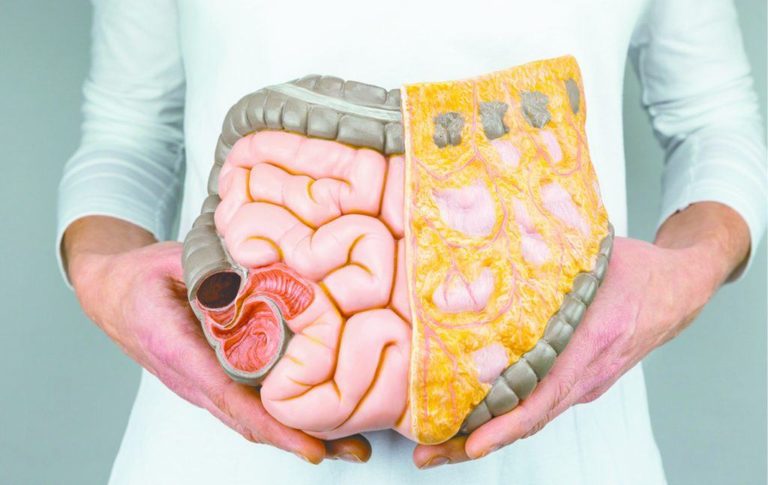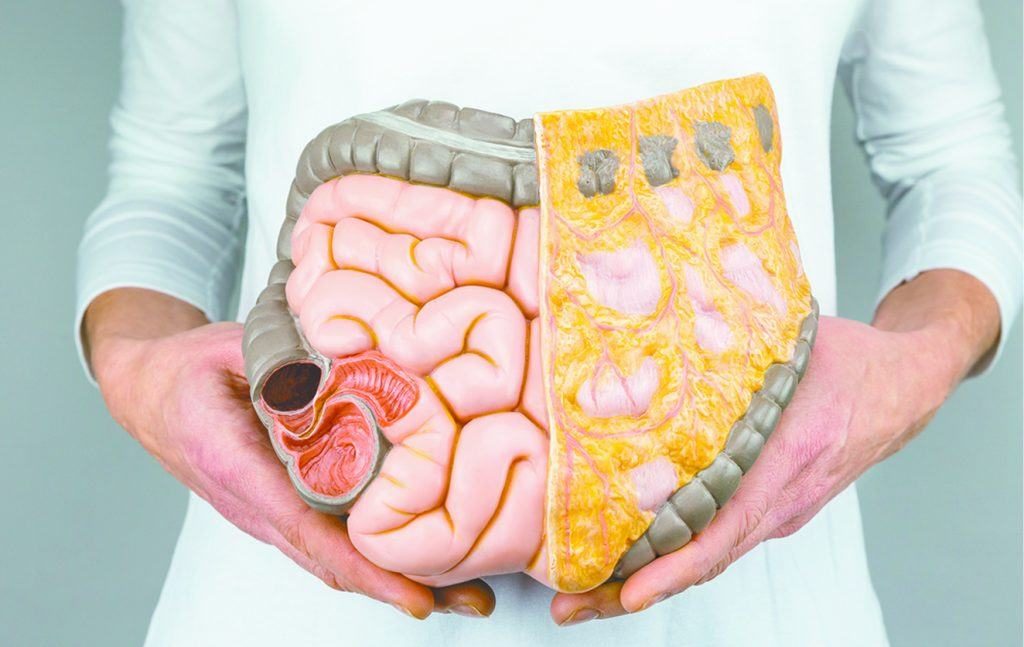In an anatomical drawing you can see that our colon is the end of our digestive tract. In effect is like a corrugated pipe wrapped in a rectangular shape in our lower abdomen. It’s about 5 feet long and 2 and half inches around. The colon is comprised of six parts including: the cecum, the ascending colon, the transverse colon, the descending colon, the sigmoid and the rectum
The colon has two main jobs. First it must receive the positive and life promoting B-vitamin complexes that are produced by healthy bacteria on its walls. In order to do this the walls of the colon must be free from debris. Second, the colon prepares the liquefied remains of our food called “chyme” for elimination. After the colon absorbs the excess water from the chyme it then pushes it out of the body, along with any dead bacteria, through the rectum.
One way to look at the colon is as a sewer system. Like a city sewer, it’s main function is to protect us from waste and poisons. It makes sense, then, that when the colon is healthy and well the rest of the body can be at ease.
Dr. Norman Walker, the inventor of vegetable juicing, wrote several books on colon health in his long career. In them he shows how the colon is linked to every other organ in the body. With his patients he observed that when there was a blockage in the colon a corresponding infirmity was usually found in one of the organs.
Walker’s conclusion is that an unhealthy colon affects the body in 2 distinct ways.
First, the colon can have up nearly 20 kg (40 pounds) of stagnant feces in it. As it becomes heavy with excess solids the colon falls out of its natural alignment and puts pressure on various other organs and systems causing stress on them. This includes the liver, kidneys, stomach, small intestine and even the heart and lungs.
If the colon is no longer able to eliminate all waste matters, the stage is set for something called “autointoxication.” This is when toxins that otherwise would have been released are retained in the colon and eventually absorbed by fat cells or the mucus lining in the intestinal tract. Either way, these sorts of toxins can have a very negative impact on overall health.
The good news in all of this is that keeping the colon clean is fairly easy to do as long as you eat a diet high in fiber and drink plenty of water. Since most of us don’t do either of these things, it’s more important than ever to complete a high quality herbal colon cleanse from time to time. I’ve been cleansing regularly for the past 10 years and haven’t been to the doctor once!



















